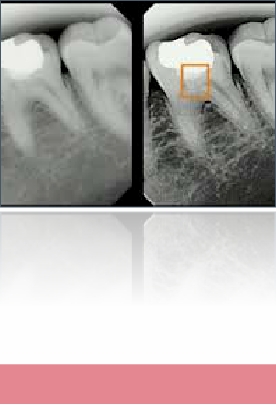A diagnostic tool that allows us to see under fillings and in between teeth. They
are vital for treatment planning.
If you are a new patient, unless you have had dental x-rays very recently, the dentist
will probably suggest having x-rays. This helps them assess the condition of your
mouth and to check for any hidden problems. After that, x-rays are usually recommended
every 6 to 24 months depending on the person, their history of decay, age and the
current condition of their mouth
X-rays are an essential part of your health records and must be kept with your personal
dental file. As dental records work differently to normal health records, your dentist
must keep your dental records for at least two years from the date of your last course
of treatment. You are entitled to copies of your records and X-rays under the Access
to Health Records Act 1990. But you will have to pay for these copies. In most
cases your X-rays and records will not be needed by your new dentist. However, if
they are important, your new dentist will let you know and either ask for your permission
to send for them, or ask you to fetch them personally.
Aldershot Dental Centre uses digital radiographs (x-rays).
Digital x-rays can use lower radiation doses.
Our digital system uses phospor plate technology. This means the sensor part that
is placed in the mouth (like a film) is less intrusive in size.
Digital x-rays can be enhanced to provide more clearer information.







 Mini Mobile Site
Teeth for Life
Aldershot Dental Centre
Wesley Chambers
info@teethforlife.org.uk
01252 322266
Aldershot GU11 3JD
Queens Road
Mini Mobile Site
Teeth for Life
Aldershot Dental Centre
Wesley Chambers
info@teethforlife.org.uk
01252 322266
Aldershot GU11 3JD
Queens Road










 Mini Mobile Site
Teeth for Life
Aldershot Dental Centre
Wesley Chambers
info@teethforlife.org.uk
01252 322266
Aldershot GU11 3JD
Queens Road
Mini Mobile Site
Teeth for Life
Aldershot Dental Centre
Wesley Chambers
info@teethforlife.org.uk
01252 322266
Aldershot GU11 3JD
Queens Road


